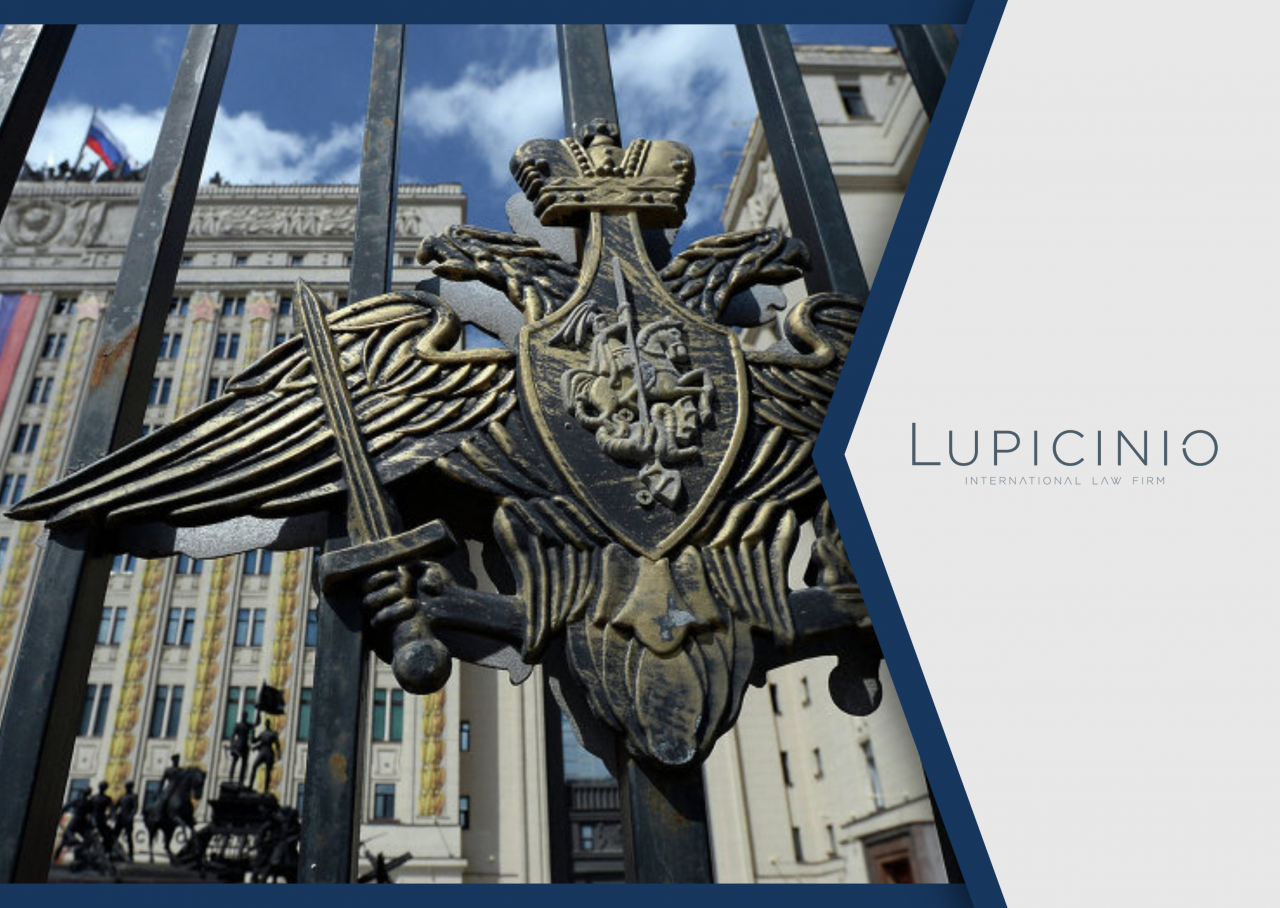In recent months, there have been repeated statements by relevant political representatives (Biden, US senators, President Von der Leyen, MEPs) proposing the idea of confiscate frozen Russian assets to pay for the reconstruction of Ukraine.
In recent months, repeated statements by important political representatives have been proclaimed (Biden, US senators, President Von der Leyen, MEPs) proposing the idea of seizing frozen Russian assets to fund the reconstruction of Ukraine.
As we all know, the European Union, the United States and other countries have imposed sanctions on the Russian Federation because of the sum of recent events in Ukraine. One of the most frequent impositions of sanctions has been the block of funds and resources of certain Russian natural and legal persons and even of the Russian State itself, so at the moment, the amount of frozen assets is very significant.
Moreover, the reconstruction of Ukraine will require an unprecedented amount of financial resources. In this situation, it is not surprising that some politicians have floated the idea of using frozen Russian assets to rebuild Ukraine. However, this proposal has weak legal force in Europe.
Beforehand, it should be recalled that the frozen funds and economic resources are of a very diverse nature (bank deposits, company shares, real estate, ships, etc.). Above all, it should be borne in mind that some of them are in public ownership (Russian State, Central Bank of Russia, etc.), but most are in private ownership, i.e. owned by a vast range of natural and legal persons, whose assets are of very different nature and amounts.
Undoubtedly, in a hypothetical future peace agreement between Russia and Ukraine, a wide range of clauses could be agreed on regarding the payment of war reparations and the assumption of responsibilities, not only by Russia, but also by third states and/or the European Union itself, which could act as guarantors or donors to facilitate the agreement; but this is a future hypothesis that we will not go into, because speculating on it would be more the work of a fortune teller than of a jurist.
We have already stated that we do not consider the possibility of confiscating the frozen Russian assets to have much legal force in Europe. First of all, since the European Union has no competence to take such action, confiscation measures must be carried out by individual member states in accordance with the provisions of their legal systems, so respecting the procedures and guarantees provided for therein and with the possibility of appeal to state courts is a matter of essential legality.
Secondly, because the assets in question are at present frozen, but not expropriated, i.e. the property belongs to its owners, even if they cannot dispose of it. Hence, the Russian owners affected enjoy the protection of property rights under international treaties, the European Convention on Human Rights, the Charter of Fundamental Rights of the European Union and the Constitutions and other state provisions. All these texts prohibit arbitrary confiscations
Third, several European states, including Spain, are tied to Russia through Reciprocal Investment Promotion and Protection Agreements (“PRIPAs”). These are normally agreements that were once signed with the Soviet Union, but which, due to the principle of state succession, continue to be effective with respect to investments from the Russian Federation. All these APPRIs exclude arbitrary expropriations, require that they always be duly compensated and establish dispute settlement mechanisms, so that possible seizures of blocked assets contrary to the provisions of the APPRIs could lead to complex investment arbitration.
In view of the above, one has to conclude that the expropriation of frozen Russian assets for the reconstruction of Ukraine has no legal grounds in Europe. Indeed, the European Union is issuing some sanctions against Russia for the events in Ukraine that many of us find outrageous and unacceptable, such as the one prohibiting lawyers in Member States from providing legal advice, except in cases of litigation, to Russian legal entities, or the broadcasting ban imposed on some broadcasters based on the territory of Member States.
Given these incoherent measures, we cannot exclude the risk of the European Union encouraging or instigating the expropriation of frozen Russian funds and resources, but this would be legally inadmissible and, furthermore, contrary to the true spirit of Europeanism.
Collaboration of José Luis Iriarte, Academic and Senior Legal Counsel.
******
More information:
Lupicinio International Law Firm
C/ Villanueva 29
28001 Madrid
P: +34 91 436 00 90
info@lupicinio.com






